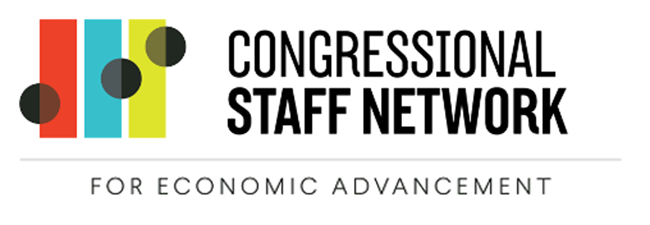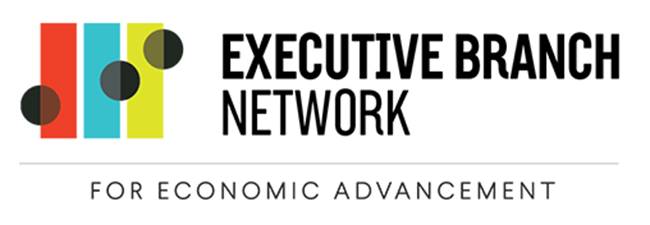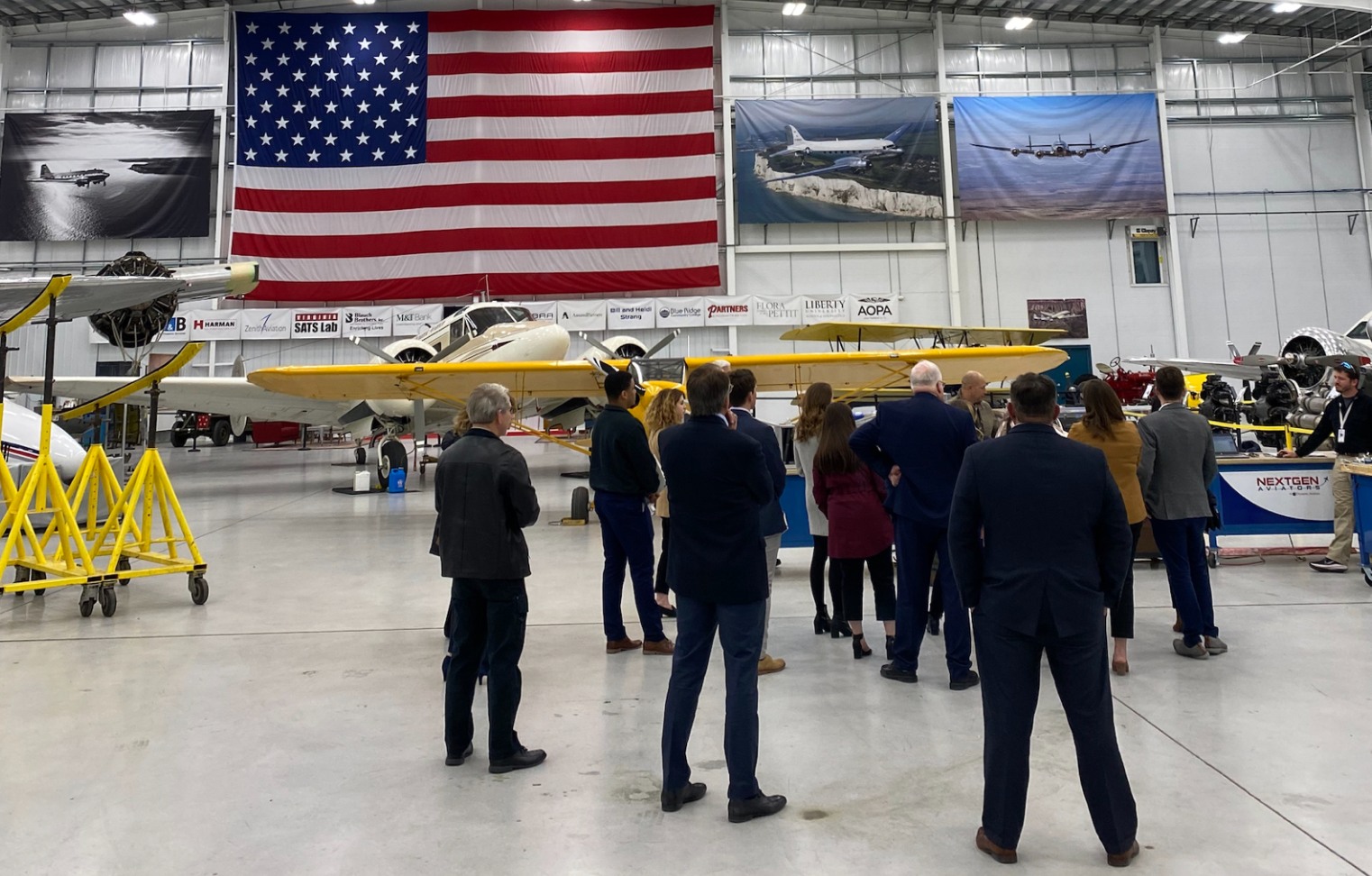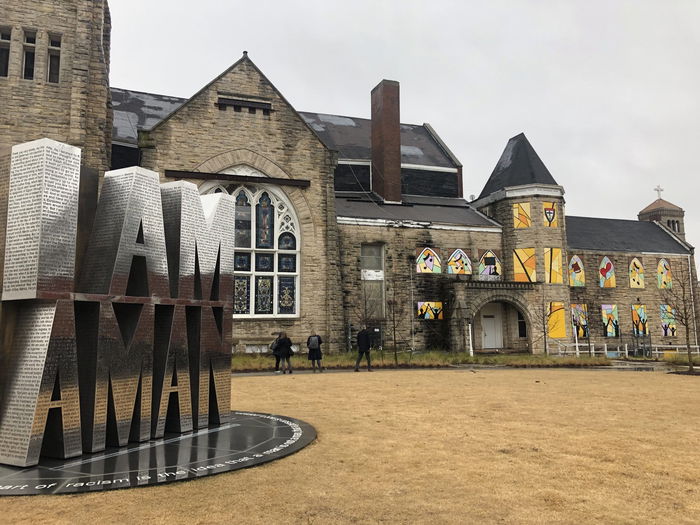

Federal Policymaker Networks
December 20, 2022
At a Glance
JFF’s Congressional Staff and Executive Branch Networks on Economic Advancement connect federal policymakers with practitioners from across the country to learn about evidence-based, replicable, and innovative practices happening on the ground that meet the nation’s most complex education and workforce challenges.
JFF works directly with federal policymakers to build their understanding of critical issues connected to equitable economic advancement, what effective practice looks like, and the policy change needed for real-world impact.
Congressional Staff Network for Economic Advancement
Since 2008, JFF has convened the Congressional Staff Network for Economic Advancement (CSN) to support knowledge sharing among congressional staff concerning education, workforce, and poverty alleviation policy issues currently confronting the federal government and Congress.
The Network is comprised of a bipartisan and bicameral group of senior legislative staff. CSN activities—site visits, DC-based forums, and small group briefings—offer participants a chance to connect directly with practitioners leading effective and innovative programs across the country, as well as current and former program participants. The CSN provides an informal and confidential setting to examine critical equity, education, and labor market issues while learning about the real-world impact and potential of federal policy.

Executive Branch Network for Economic Advancement
Originally launched under the Obama Administration, JFF’s Executive Branch Network for Economic Advancement (EBN) provides educational programming to a core set of senior executive branch officials (political appointees and career staff) on issues pertaining to education, workforce development, and poverty alleviation. EBN participants, including staff from the White House and relevant federal agencies, gain access to experts and practitioners whose work sheds light on the impact and promise of federal action. EBN meetings and forums provide informal and confidential settings for federal leaders to examine critical policy areas that are timely and relevant to the current Administration.

- In August 2022, JFF hosted a CSN site visit to Boston, Massachusetts that focused on proven and promising efforts to address the city’s stark racial wealth gap. Participants discussed the impact of deep coordination between the public school system, employers, and the workforce development board. The innovative training and skill development programs featured during this site visit included the following, among others:
- The Boston Healthcare Careers Consortium’s longstanding employer-led, sector-based workforce development model
- Vertex Pharmaceuticals’ unique STEAM education programs, conducted in partnership with Boston Public Schools

- In April 2022, JFF hosted a CSN site visit to the Shenandoah Valley region of Virginia. During the two-day trip, staff learned about the exciting workforce development and education efforts that stem from strong partnerships across Blue Ridge Community College (BRCC), the Shenandoah Valley Workforce Development Board (SVWDB), and the Shenandoah Valley Partnership (an economic development entity). A few highlights from the programs and initiatives we examined include:
- How BRCC is leveraging the statewide FastForward short-term workforce credential program
- BRCC’s STEM pathways partnership with Merck and James Madison University
- The Dynamic Aviation NextGen Aviators career exploration program, which helps young people and their families learn about aviation and avionics careers
- SVWDB’s Valley 2 Virginia Registered Apprenticeship program
- In April 2022, JFF held its first EBN forum under the Biden Administration on expanding access to in-demand jobs through high-quality apprenticeships – including pre- and youth apprenticeships – and career and technical education (CTE) programs. Panelists from The Loop Lab in Massachusetts, Mitchell Community College in North Carolina, and United Way of Greater Atlanta discussed the role of strong pre- and youth apprenticeship programs in achieving strong participant outcomes, effective employer engagement strategies, and opportunities for federal policy to better support innovative apprenticeship and CTE programs.
- In March 2022, JFF convened the CSN for a forum on high-quality pathways to apprenticeship, including pre- and youth apprenticeship. Speakers from The Loop Lab, the Wisconsin Regional Trading Partnership, and United Way of Greater Atlanta discussed the role of intermediaries in program implementation, administrative barriers to accessing federal Registered Apprenticeship grants and recognition, and strategies to expand high-quality apprenticeship to new industries and under resourced communities.
- In August 2019, JFF hosted a CSN site visit to Denver, Colorado to see the region’s cross-cutting innovative work in aligning and scaling career pathways, sector, and apprenticeship initiatives. Leaders from secondary and postsecondary institutions, community-based organizations, industry, shared how they are collaborating across sectors to drive inclusive economic prosperity and growth. Staff learned from the following programs, among others:
- Northeast Early College High School’s equity-focused approach to dual enrollment
- The Community College of Aurora’s guided pathways strategy
- Techtonic software development apprenticeships and boot camps
- CareerWise Colorado’s efforts to modernize youth apprenticeship
- Urban Peak, a community-based organization that is nationally recognized as a model for best practice in serving homeless youth
- The seven-week culinary job training program that Work Options for Women runs through its Mobile Culinary classroom
Related Content


A Place for Second Chances
Clayborn Temple, a Memphis landmark of the civil rights era, is the backdrop for a congressional site visit on finding ways to support the disenfranchised, including individuals who have served time in prison and seek…

Beyond Coal: Eastern Kentucky’s Future Economy
Eastern Kentucky is focused on regaining economic strength so its livelihood won’t be dependent on a single industry.

Policy at JFF
JFF’s policy team offers fresh ideas on education, poverty alleviation, and workforce issues that prepare students and workers for the jobs of the future and boost our nation's economy. JFF’s policy team offers fresh ideas…

Financing the Future
JFF’s Financing the Future initiative reimagines the way we finance education and skills development. Our Vision Jobs for the Future’s Financing the Future (FTF) initiative is working to reimagine financing for postsecondary education and skills…

Policy Leadership Trust
This select group of education leaders lets experience be their guide in developing state and federal policies that help students attain credentials for greater success in the labor market. In 2015, JFF established The Policy…